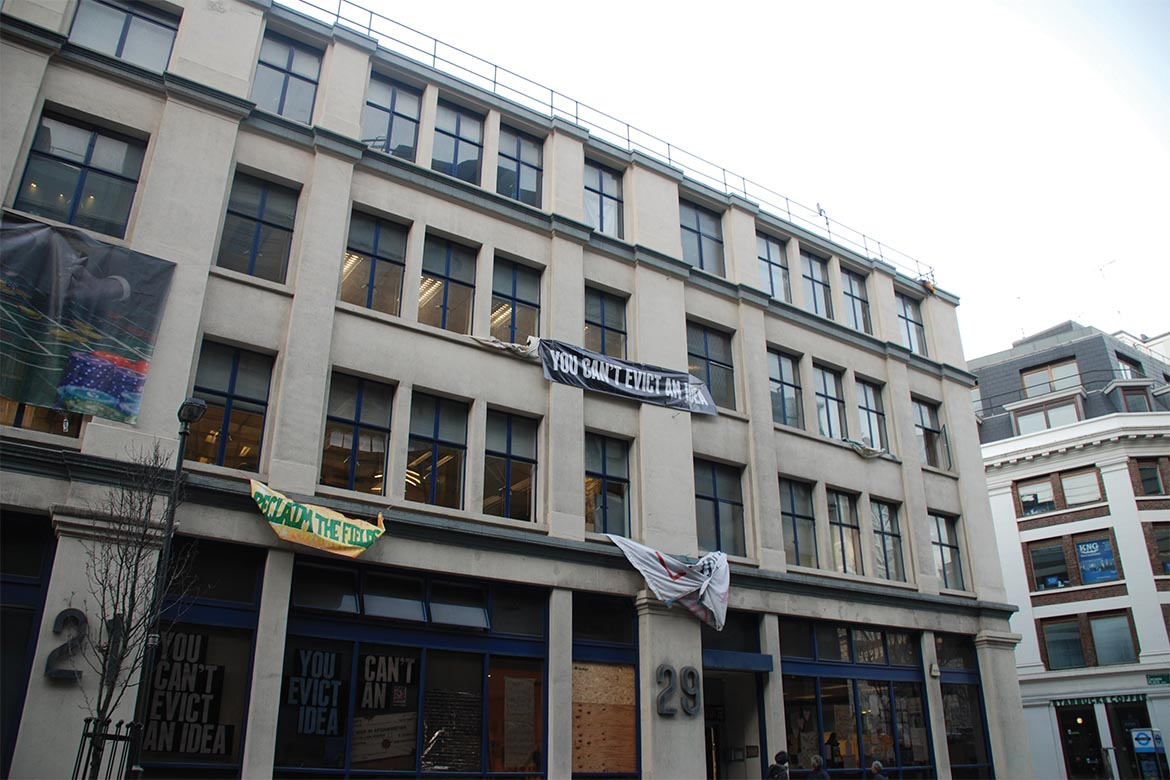Empty threats
As the number of empty homes and offices increases, so does the threat of squatters.
The Government has been considering relaxing planning laws to allow more commercial property to be turned into residential homes in response, but whether this will be enough to help the nation’s commercial and residential landlords is unclear. We explore ways to stay safe against squatting.
In 2011, the British Government estimated that there were 20,000 squatters in the UK and over 650,000 empty properties. This is a conservative estimate. And as the number of people needing to be housed rises, so does the risk of squatting, which is devastating for landlords when it does happen.
“Squatters damage properties and, if the problem is severe, it can affect rental and sale prices for entire areas,” says Shaq Chaudhry, Managing Director of Angel Lettings. “No-one likes the uncertainty of living or working next door to transient people with no interest in maintaining or improving their surrounding environment.”
For districts with a strong commercial presence such as Manchester’s Salford Quays or Birmingham’s Colmore Business District, maintaining a desirable built environment is essential in order to remain attractive to its resident businesses.
“Investing in a comprehensive managed security solutions package, which may include either individual or a combined service provision such as 24-hour CCTV, manned guarding and guardian services, provides a fool-proof deterrent against any unauthorised occupation or entry to the premises,” explains Tony Graves, Customer Services Director from CIS Security.
“The timescales for eviction, legal costs and additional costs attributed to internal and external damage to premises inevitably caused by squatting, far outweighs the cost of protection.”
Fuel for the fire
Organisations like the Squatters’ Advisory Service and estate agent style websites advertising newly ‘vacant’ properties are also compounding the threat, but many property portfolio holders cannot afford to invest in adequate security provision any more than they can wait and hope.
“The high cost of restoring a commercial property to a useable state can mean that it looks better on paper to turn it in to a residential property,” continues Shaq.
“In fact we have already seen a few commercial properties converted in this way and we wouldn’t be surprised if the trend continued.”
For landlords considering this as an option, the planning processes can still be lengthy and tricky to reverse, so it isn’t a short-term fix or a solution for everyone. And although police forces will do all they can to assist, it is the owners who are ultimately responsible for protecting their premises.
Many police forces recommend that property owners take care to ensure their premises are adequately protected and in some cases, landlords have had to think creatively in order to keep costs down without compromising on security.
Another way: property guardianship
Property guardianship is becoming a popular option for landlords who cannot – or do not want to – pay for a fully managed security service. There are now several property guardianship firms that offer to secure vacant commercial and residential property by bringing in short-term tenants willing to move out at very short notice, who will ensure the building stays in good repair and, most importantly, squatter-free.
“The fact that there are empty buildings out there that could be put to good use is nothing new, but the problem of evicting squatters legally only became an issue post-war,” explains Lars Newbould, Managing Director of property guardianship firm, Newbould Guardians. “Though there are plans to make squatting illegal, this change in legislation will only be applicable to residential properties, not to commercial ones. Our clients are typically attracted to our business because it is flexible, low-cost and effective. And at a time when flexibility often means money, that is invaluable.
“Because of market need, there are increasingly creative ways to tackle the issue of securing property,” concludes Lars. “We would always recommend that some action is better than none, even if it isn’t your first choice.”
Proactive protection
If you have an empty property and cannot afford to invest in fully managed security solutions, there are still several ways you can guard against squatting. These include:
- Keeping properties securely locked when unoccupied – local police will advise you on whether you need to take further action.
- Try to create the appearance of occupation using lights, sound or making regular site visits.
- Fence off or adequately barricade areas of vacant land.
- Property guardianship companies specialise in providing temporary occupiers for vacant commercial and residential premises and some offer their services to landlords at very low cost.
- Do not leave premises unoccupied for long periods.
- If you find squatters on your premises contact the police immediately. They may be able to act without reference to the courts.
- Try to be present when the police attend, to give an accurate picture of the situation.
- If the police are unable or not willing to assist, start legal proceedings for an Interim Possession Order immediately.
For further help, the Home Office has published an online guide outlining people’s rights in response to websites set up to help squatters get round the law.
Emma Jones
Operations Manager, Newbould Guardians


